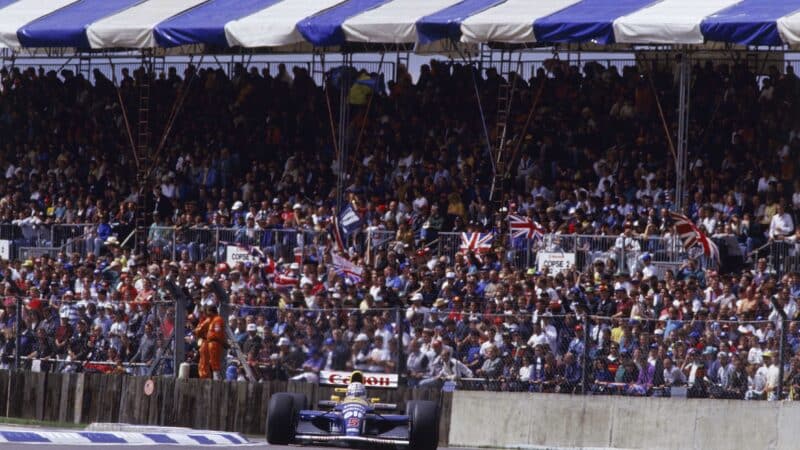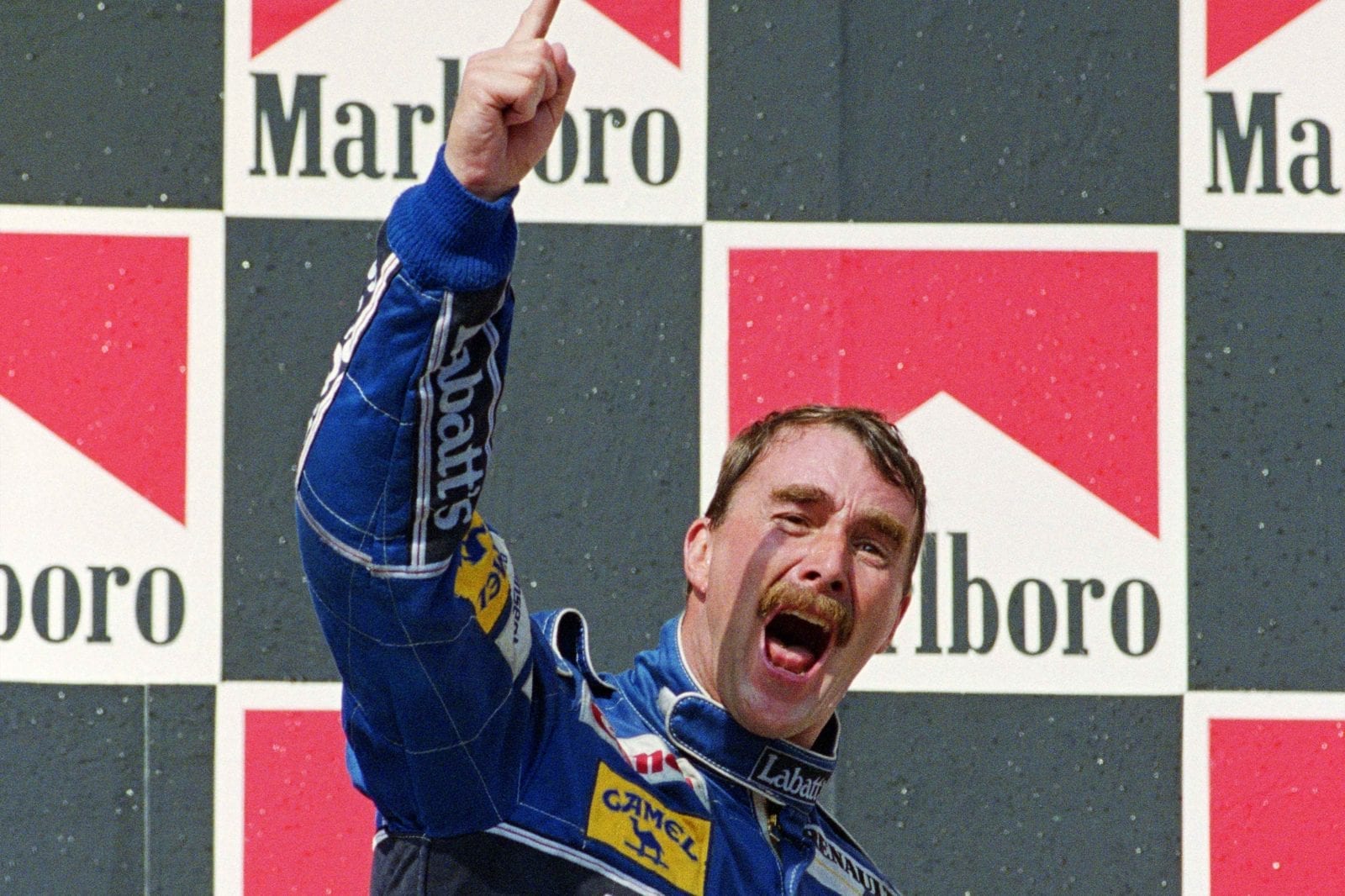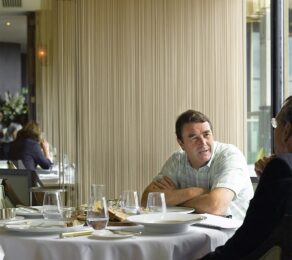When he made his GP debut in Austria the following year he went to the startline sitting in a bath of fuel. Where Tom Pryce had suffered in silence en route to fourth place at the ’Ring five years earlier, Nigel needed to have his fortitude recognised. That could be wearing, but it was the way he was. “There I was, about to start my first Grand Prix, and I was getting the most incredible stinging pains in my backside,” he related. “Everyone kept asking me if I wanted to get out, but how could I? There was no way. You just don’t do that when you’re about to make your Grand Prix debut!”
They poured water into the cockpit but it soon evaporated, yet he soldiered on until the engine broke after 41 laps. What was it the great Jack Dempsey said? “A champion is somebody who gets up when they can’t.”
I watched Mansell at Brands Hatch in 1983 wrestling the awful Lotus 93T, and his driving was nothing short of breathtaking. But though the fearsome determination and bravery were the cornerstones of his career, there was much more besides. Forget all that mumbo-jumbo about him being a grafter who made up in effort what he lacked in ability. There was massive natural talent there.
“Nigel was a very, very quick, strong, determined driver who knew what he wanted and was very clever at setting up a car,” designer and race engineer Frank Dernie says, before making a valuable distinction. “And he was forceful rather than aggressive.”
Lotus and Williams team manager Peter Collins, who gave him that Ricard test, concurs. “Everyone said that Alain Prost was brilliant at chassis setting, but when they were at Ferrari in 1990 Nigel sorted out his 641/2 much quicker. And he was one helluva race driver.”
Indeed. He was a warrior, a superb racer. Every test session, let alone practice or qualifying session, he needed to be fastest. That’s the way he was. He always attacked.

The British Grand Prix in 1992 when ‘Mansell Mania’ was at its height
DPPI
Who can forget his string of Grand Prix victories on home soil, especially the one that came with that brilliant dummy he sold Nelson Piquet before destroying him at Silverstone in 1987? That wonderfully opportunistic pass on Senna in Hungary in 1989? His majestic domination in the Williams FW14 and 14B, and that side-by-side, spark-raising battle down the main straight with Senna in Barcelona in 1991? From late 1985 onwards there was never any question that he was the real deal. A World Championship, 31 GP wins, 32 poles and 30 fastest laps attest to that.
At a key stage he lost the vital support of one of the men who believed in him the most: Colin Chapman. Thereafter his relationship with Lotus boss Peter Warr was a burden to them both and it was not until he switched to Williams in 1985 that his true ability shone through. But he never gave up during this troubled period, and therein lies the key. Mansell never quit.


